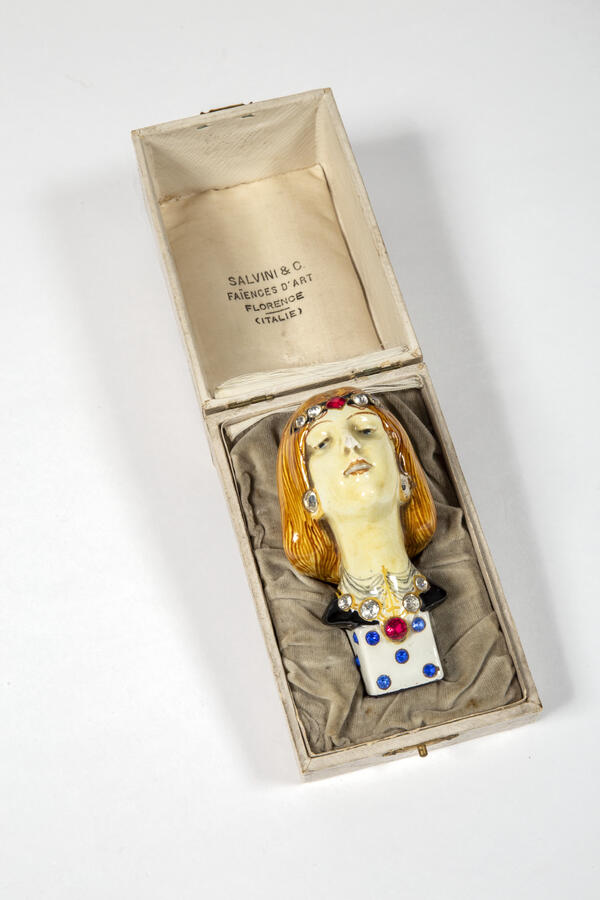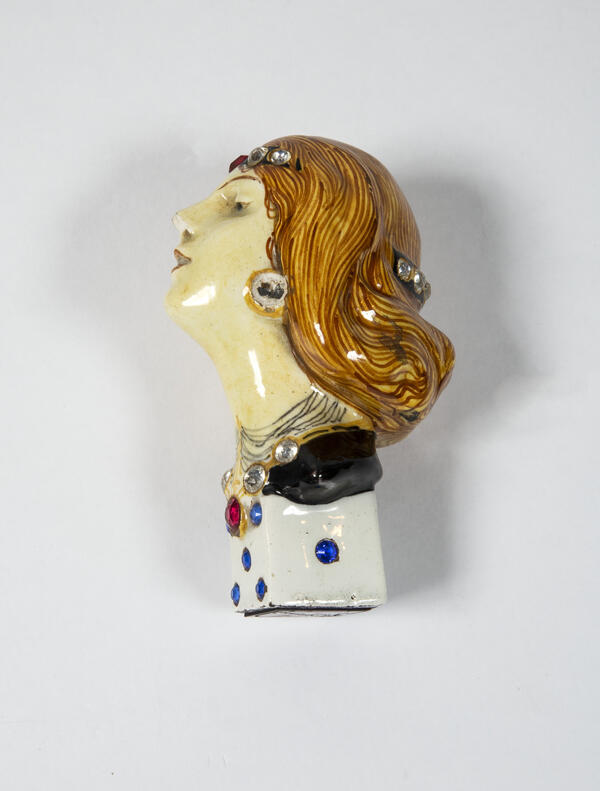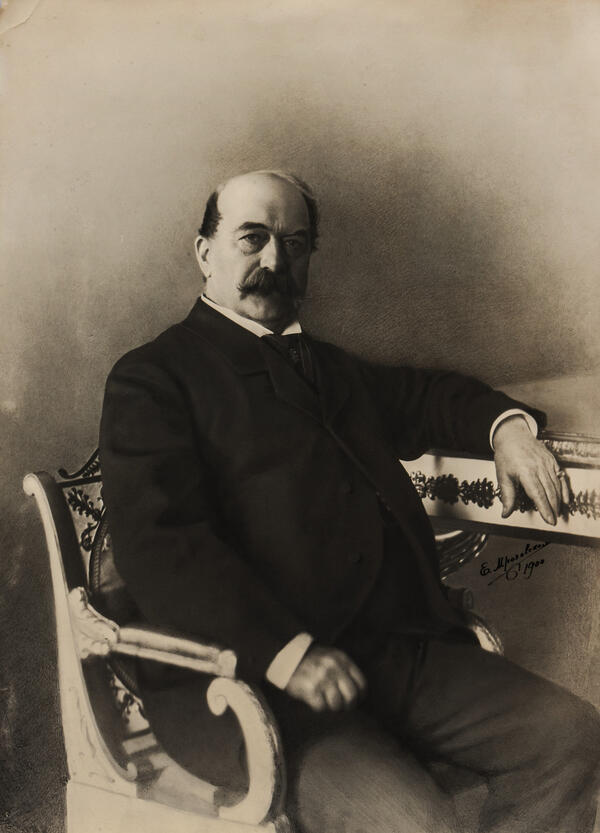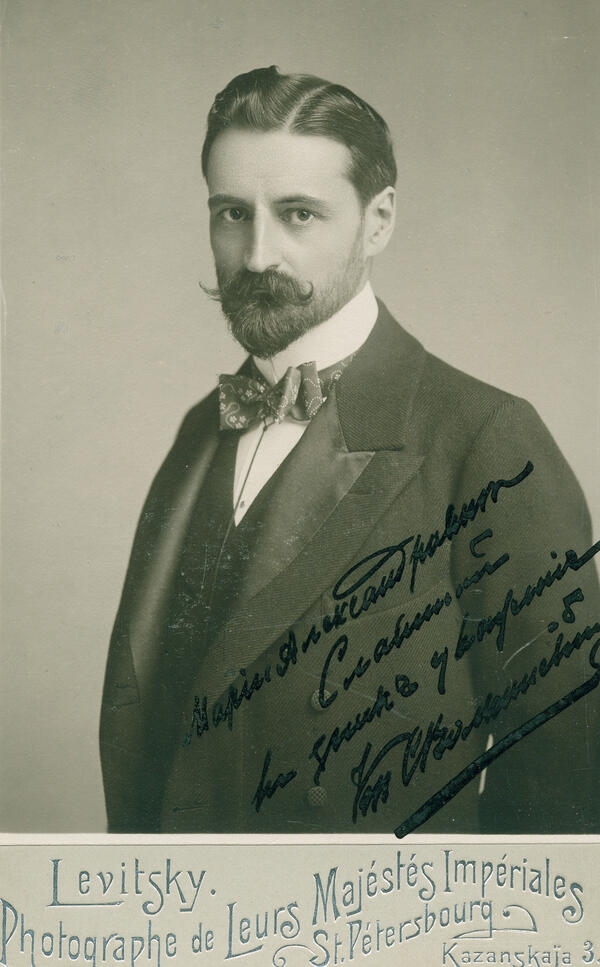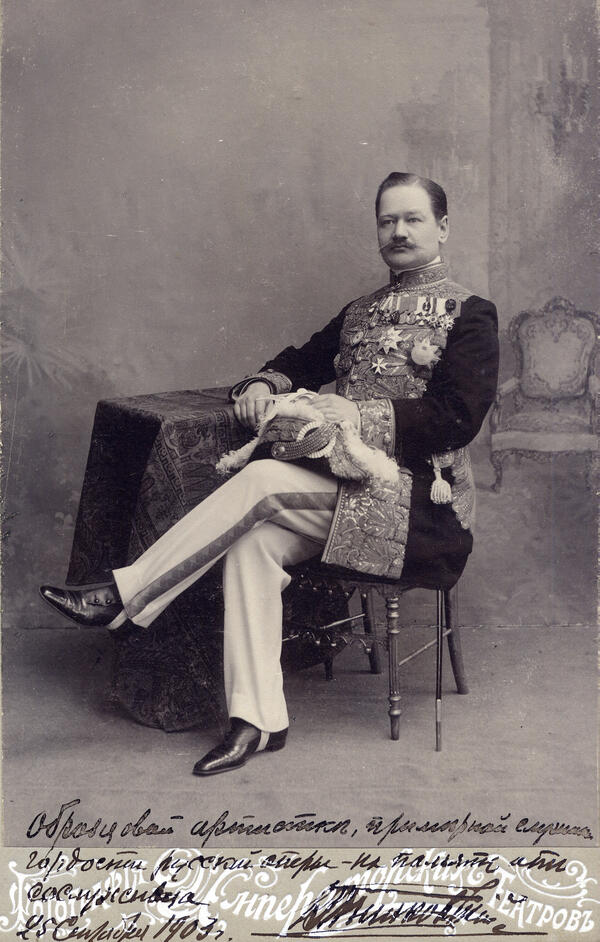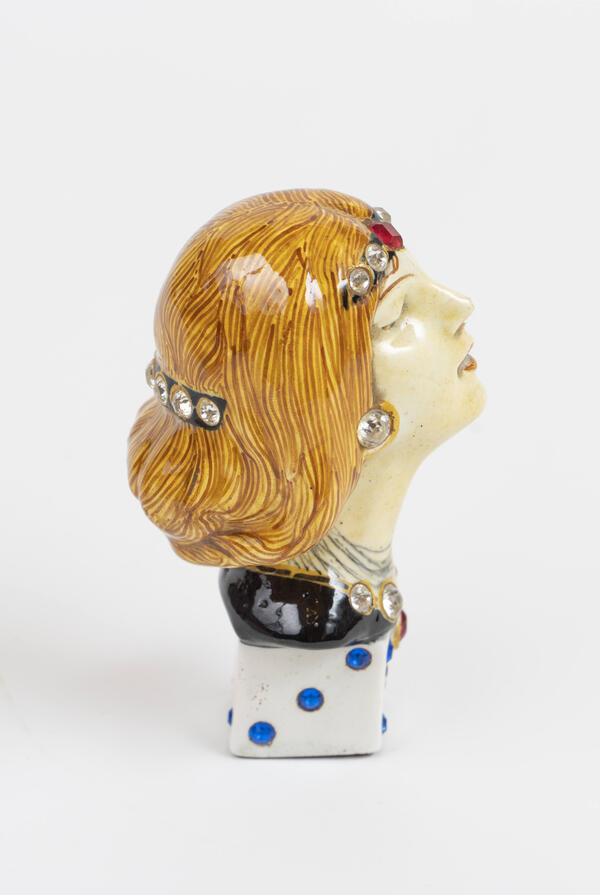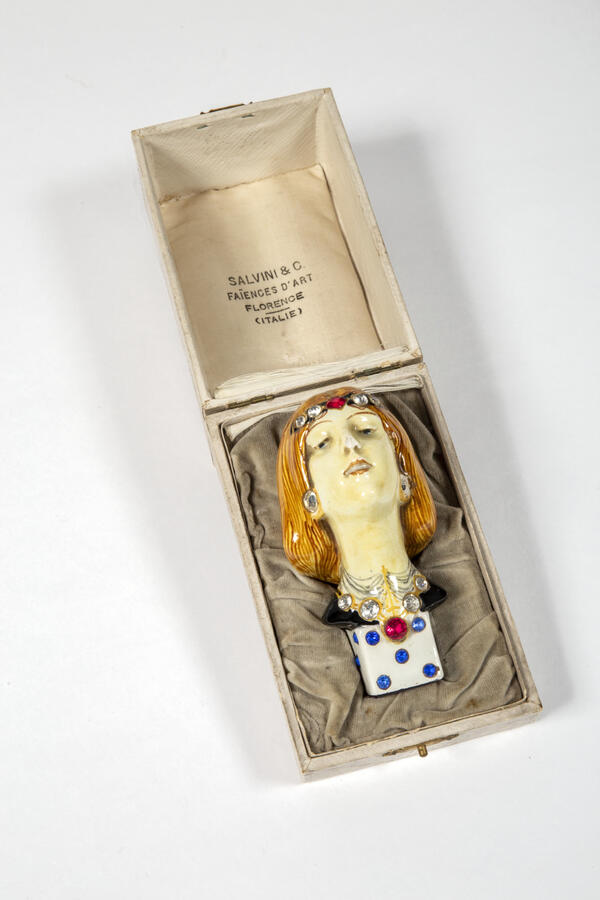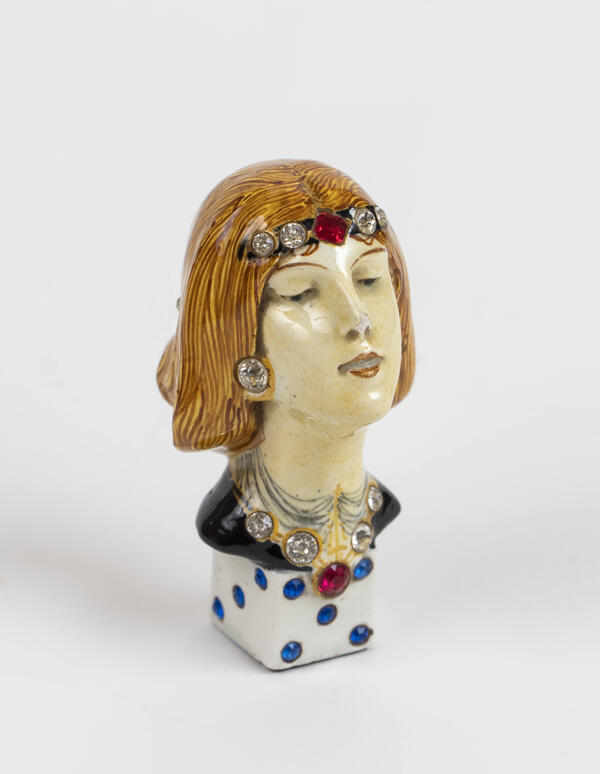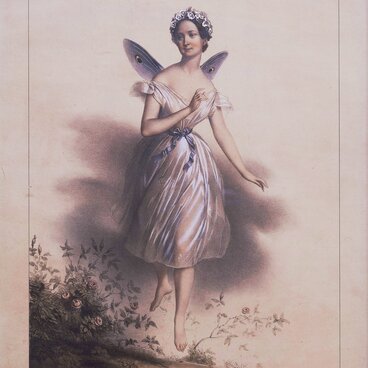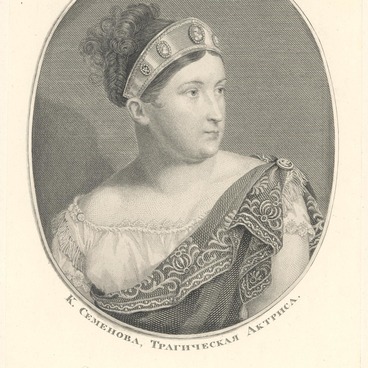The facsimile seal given by the Italian actor Tommaso Salvini to Vladimir Teliakovsky. Side-view
The museum houses a facsimile seal that belonged to Vladimir Teliakovsky — the last director of the Imperial Theaters. The seal handle that is shaped like a woman’s head is made of porcelain and decorated with blue, white, and red rhinestones. The stand, which resembles a die, has a metal plate with a facsimile signature in French. The seal was presented to Teliakovsky in a white leather case by the Italian tragedy actor Tommaso Salvini during his tour in Russia — the inside of the lid features the inscription Salvini & C.
Tommaso Salvini came to Russia numerous times. Prince Serge Wolkonsky, who directed the Imperial Theaters from 1899 to 1901, invited the actor over to Russia to perform his most acclaimed role of Othello. Wolkonsky recalled, “For a few evenings the Alexandrinsky Theater was immersed into the spirit of high tragedy.”
In 1900, Tommaso Salvini visited both St. Petersburg and Moscow. At the time, the Moscow Imperial Theaters were directed by Vladimir Teliakovsky. Salvini’s performances were well-organized, and the actor was pleased with the care and attention he received.
Salvini presented Teliakovsky with an interesting and unique facsimile seal that he had ordered from Italy. The dice shape was chosen for the stand for a reason: from the earliest times, dice stood for good luck and success. Also, in his play “As You Like It”, William Shakespeare, who was Salvini’s favorite playwright, used the words that sank into the actor’s heart, “All the world’s a stage, And all the men and women merely players.”
Wolkonsky’s term as the director of the Imperial Theaters eventually came to an end, so Teliakovsky, who was supposed to replace him, moved to Saint Petersburg and held the position from 1901 to 1917. Teliakovsky hired Konstantin Korovin as the stage designer of the Imperial performances.
Korovin remembered Teliakovsky as
The museum houses a facsimile seal that belonged to Vladimir Teliakovsky — the last director of the Imperial Theaters. The seal handle that is shaped like a woman’s head is made of porcelain and decorated with blue, white, and red rhinestones. The stand, which resembles a die, has a metal plate with a facsimile signature in French. The seal was presented to Teliakovsky in a white leather case by the Italian tragedy actor Tommaso Salvini during his tour in Russia — the inside of the lid features the inscription Salvini & C.
Tommaso Salvini came to Russia numerous times. Prince Serge Wolkonsky, who directed the Imperial Theaters from 1899 to 1901, invited the actor over to Russia to perform his most acclaimed role of Othello. Wolkonsky recalled, “For a few evenings the Alexandrinsky Theater was immersed into the spirit of high tragedy.”
In 1900, Tommaso Salvini visited both St. Petersburg and Moscow. At the time, the Moscow Imperial Theaters were directed by Vladimir Teliakovsky. Salvini’s performances were well-organized, and the actor was pleased with the care and attention he received.
Salvini presented Teliakovsky with an interesting and unique facsimile seal that he had ordered from Italy. The dice shape was chosen for the stand for a reason: from the earliest times, dice stood for good luck and success. Also, in his play “As You Like It”, William Shakespeare, who was Salvini’s favorite playwright, used the words that sank into the actor’s heart, “All the world’s a stage, And all the men and women merely players.”
Wolkonsky’s term as the director of the Imperial Theaters eventually came to an end, so Teliakovsky, who was supposed to replace him, moved to Saint Petersburg and held the position from 1901 to 1917. Teliakovsky hired Konstantin Korovin as the stage designer of the Imperial performances.
Korovin remembered Teliakovsky as

